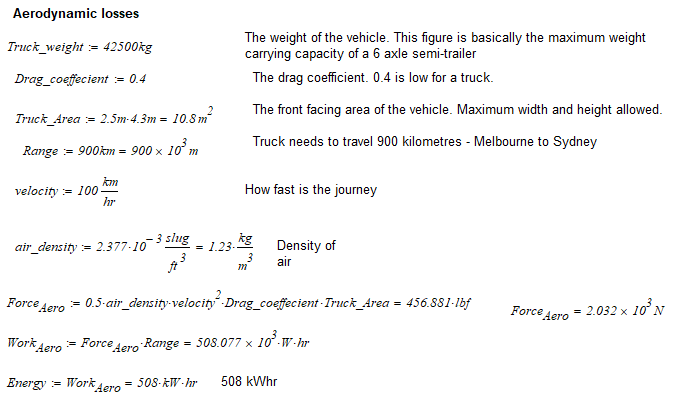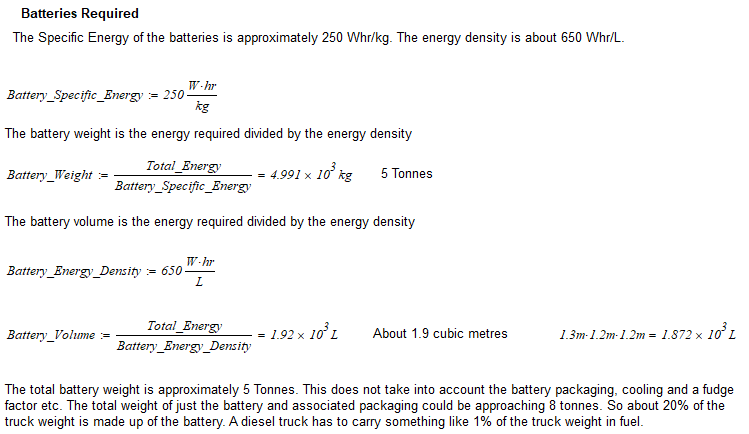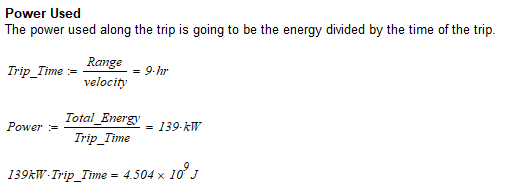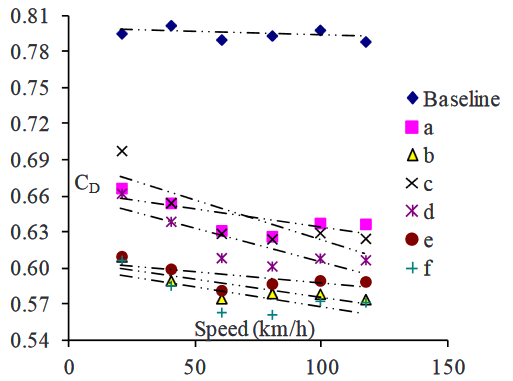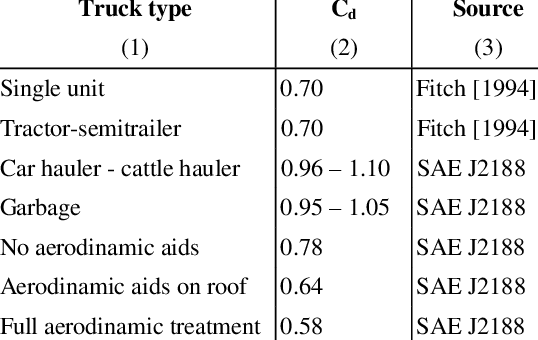Here’s some calculations I did when the truck was first mooted by the great Elon. I’ve fixed up a bit of the formatting.
First comes the losses experienced by a truck on its journey. In this case 900 km from Melbourne to Sydney. Note that this trip is along a perfectly flat road with minimum rolling resistance for asphalt. Even though the speed limit is 110 km/hr along that stretch of road truck are limited to 100 km/hr and no truckie would ever dream of breaking the speed limit, so the aero losses are 508 kWhr. If I increase the trucks speed to 110 km/hr the losses go to 615 kWhr and the battery weight up to 5.44 tonnes. Going faster certainly makes the losses go way up.
